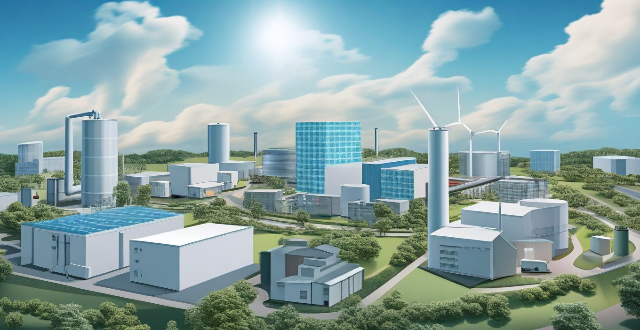Distributed energy systems (DES) have become increasingly popular due to their numerous benefits. These systems can include solar panels, wind turbines, micro-hydro plants, and other renewable energy sources. The key benefits of using a distributed energy system are increased energy efficiency, lower energy costs, improved reliability and resilience, environmental sustainability, encouragement of local economy and job creation, promotion of energy independence and security, and flexibility and scalability. Adopting a distributed energy system brings numerous benefits ranging from increased efficiency and cost savings to improved reliability, environmental sustainability, economic development, and energy security.

What are the Benefits of Using a Distributed Energy System?
Distributed energy systems (DES) have become increasingly popular in recent years due to their numerous benefits. A distributed energy system is a network of small-scale energy generation units located near the end-users, such as homes, businesses, or communities. These systems can include solar panels, wind turbines, micro-hydro plants, and other renewable energy sources. In this article, we will discuss the key benefits of using a distributed energy system.
Increased Energy Efficiency
One of the main advantages of DES is that it can significantly improve energy efficiency. By generating electricity close to where it is needed, less energy is lost during transmission and distribution. This means that more of the energy produced can be used for powering buildings and devices, reducing waste and increasing overall efficiency.
Lower Energy Costs
Another benefit of DES is that it can help reduce energy costs for consumers. When individuals or businesses generate their own electricity, they can sell any excess energy back to the grid, potentially earning money while also reducing their reliance on utility companies. Additionally, since DES often uses renewable sources like solar or wind power, it can provide a long-term solution for reducing energy expenses.
Improved Reliability and Resilience
Distributed energy systems can also enhance the reliability and resilience of the electrical grid. By having multiple smaller generation units spread out across different locations, the system becomes less vulnerable to large-scale outages caused by natural disasters or other disruptions. If one area experiences an issue, other parts of the system can continue to operate independently, ensuring that critical services remain uninterrupted.
Environmental Sustainability
Using a distributed energy system has significant environmental benefits as well. Since many DES rely on renewable resources like sunlight or wind, they produce little to no greenhouse gas emissions compared to traditional fossil fuel-based power plants. This makes them an excellent choice for those looking to reduce their carbon footprint and contribute to a more sustainable future.
Encourage Local Economy and Job Creation
The installation and maintenance of distributed energy systems require skilled labor, which can lead to job creation in local communities. Moreover, investing in local renewable energy projects supports the growth of small businesses and entrepreneurs specializing in green technologies. This not only boosts the local economy but also fosters innovation and technological advancements in the field of sustainable energy.
Promote Energy Independence and Security
By generating electricity locally, distributed energy systems promote energy independence at both individual and community levels. This reduces dependence on foreign oil and other non-renewable resources, enhancing national security by decreasing vulnerability to supply disruptions or political instability affecting global markets.
Flexibility and Scalability
Distributed energy systems offer great flexibility and scalability options. They can be designed to meet the specific needs of various applications, from small residential setups to large industrial complexes. As technology advances and demand changes, these systems can easily be expanded or upgraded to accommodate new requirements without major overhauls.
In conclusion, adopting a distributed energy system brings numerous benefits ranging from increased efficiency and cost savings to improved reliability, environmental sustainability, economic development, and energy security. As we continue to face challenges related to climate change and resource scarcity, transitioning towards decentralized and renewable energy solutions will play a crucial role in shaping a more sustainable future for all.